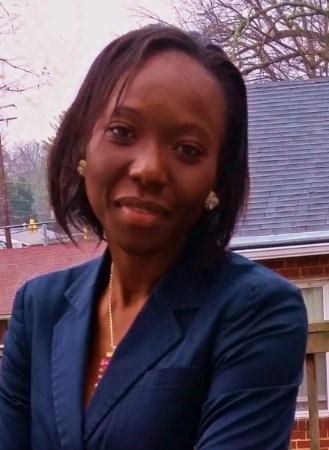I learned a lot from my first evaluation consultancy. After I completed American University’s Certificate in Project Monitoring and Evaluation, I was offered an evaluation assignment with an independent evaluation organization in the Washington, D.C. metropolitan area. Being fully loaded at the time with the theories of monitoring and evaluation approaches, in addition to qualitative and quantitative data collection methodologies, little did I know of the richness of the evaluation arena. Another form of learning started for me as I decided to be a good student and acquire as much practical knowledge as I could to improve and grow in this newfound profession. Here I share with you the most valuable takeaways from my first assignment.
Lesson 1: Your Functional Area of Expertise Matters
Monitoring and Evaluation skills are increasingly needed in many development projects; however, additional expertise in a functional area increases the quality of the evaluation. My new opportunity was exciting, yet as the weeks went by, I realized I was mainly hired because of my technical abilities to analyze some of the environmental and social sustainability aspects of the development interventions we were to evaluate. It was also apparent to me that the department would assign evaluation tasks based on people’s functional background, be it academic or professional. For example, an agricultural specialist with monitoring and evaluation experience would be hired to evaluate an agricultural expansion project. Functional expertise may not always help you to land a consultancy and complete an evaluation well, but I think adding one functional expertise to one’s skillset can be a plus in this regard.
Lesson 2: Know the Focus of Your Organization: Monitoring or Evaluation
The focus of the team was made very clear to me from the beginning. I was told: “This task is about evaluation; we don’t monitor project activities; we evaluate project performance.” Still, it was difficult not to highlight implementation data as I was conducting research. Focusing solely on evaluation information was challenging. It took me some time to internalize that not all companies or assignment teams focus on project monitoring. Even though the organization as a whole worked on both monitoring and evaluation, the division of labor was clearly defined, and my task was to support project and program evaluation activities using specific metrics. Keeping on track with evaluation was essential to my successful completion of the assignment.
Lesson 3: Consider Technology
New technologies can greatly benefit one’s evaluation work, yet some companies are more advanced than others. You need to realize that not all organizations need or want the latest data collection or analysis tools, even if you think that they would be more efficient. In my assignment, the most important task was to deliver my results, which meant not using the latest software and tools with which I was most familiar. On the contrary, I needed to learn and use the company system with its own built-in toolkit. The organization offered training sessions on their work, including how to navigate their systems. This was time consuming. I should have gone into the assignment asking upfront about the use of technology and tools to support the evaluation research. Since this original assignment, I have learned that in some instances, an organizational hierarchy will grant approval to use additional tools before an assignment begins.
Lesson 4: Find Your Fit Between the Field and the Office
One of the complexities of monitoring and evaluation lies in its number of tasks. There are field-based activities, research, analysis, presentation, report writing, and publication. Not all evaluators will be involved at all levels. My assignment was heavily analytical, so no field or direct interaction with the project teams were involved. Even though the unit would sometimes undertake field-verification activities, most of the work was divided between desk review, quality assurance, and validation of evidence provided by field-based teams. This was a perfect fit for me as I was not interested in travelling at the time, but it could be a concern to someone looking to interact more with project beneficiaries or field-based stakeholders. Before accepting a job offer, you should investigate if the fit between the field and the office suits your professional goals and personal situation.
These four lessons come from my experience with my first evaluation consultancy. Although they are reflective of my work, these lessons are important for anyone entering the field of monitoring and evaluation.
About the Author
 Judith Lewetchou is a Social Development and Evaluation consultant with international development organizations in the Washington DC metropolitan area. She received her Bachelor’s degree in rural Sociology from the university of Yaoundé I in Cameroon, and a Master’s Degree in Applied Research and Social Intervention from the Université Catholique de Louvain in Belgium. She completed the Graduate Certificate in Project Monitoring and Evaluation at American University in 2016 and is preparing a PhD in Sociology.
Judith Lewetchou is a Social Development and Evaluation consultant with international development organizations in the Washington DC metropolitan area. She received her Bachelor’s degree in rural Sociology from the university of Yaoundé I in Cameroon, and a Master’s Degree in Applied Research and Social Intervention from the Université Catholique de Louvain in Belgium. She completed the Graduate Certificate in Project Monitoring and Evaluation at American University in 2016 and is preparing a PhD in Sociology.
To learn more about American University’s online MS in Measurement & Evaluation or Graduate Certificate in Project Monitoring & Evaluation, request more information or call us toll free at 855-725-7614.



